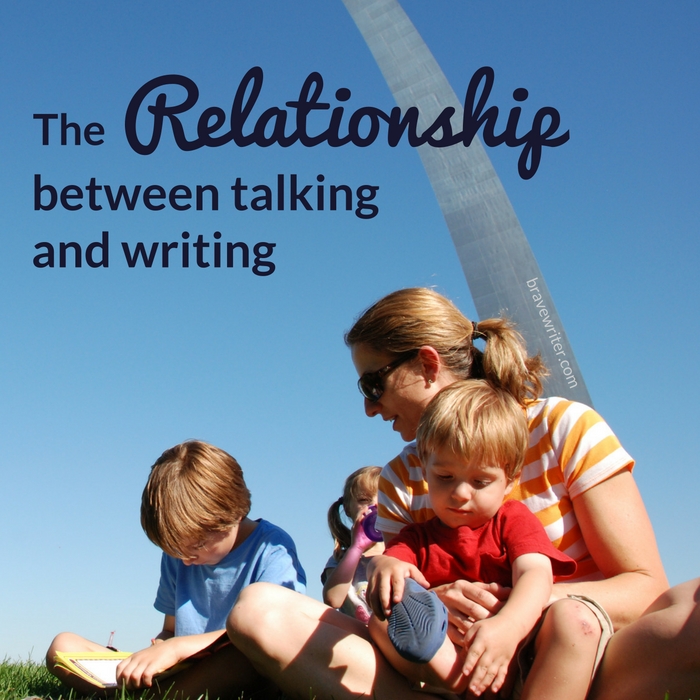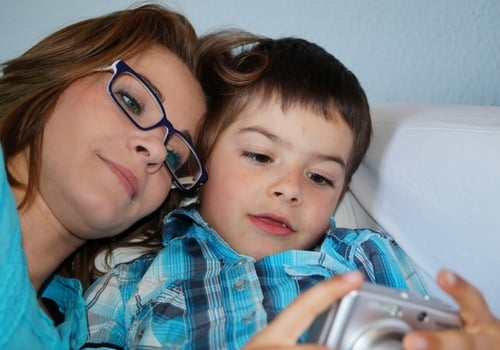More about Talking and Writing

A Brave Writer mom writes:
Hi Julie,
Thanks for this post. I am challenged to give my children full attention talk time. I am always DOING something while they are talking. I am not sure what they’d do if I stopped and looked them and in the eye!
I found the post interesting as it relates to me though. I feel that I am better able to express myself through the written word. For me, the opposite of what you’ve described seems to be true. When I have let the words come out through my fingers and onto the page, I am a much more confident talker later on. After writing, I have a better idea of how I feel, what I think, what’s important. In fact, I’d like to see how improved writing could improve my abilities as a conversationalist.
Let’s talk (I mean write!) about this.
When I say that talking helps kids write, I mean it. But I want to acknowledge that:
Writing helps us think better than talking.
It is perfectly natural and right that when you want to figure out what you really think about a topic, writing is more likely to draw it from you than talking or chatting. A good conversation with a supportive listener can have a similar effect, but the truth is, there is something about putting those words down onto a page where you can sit back and reread or observe them that causes you to identify the thread, the thought, the idea in its concrete form more effectively than chatting or talking.
So I want you to know I agree with you. That fact (that writing leads to clarity of thinking) is what has made me a chronic journal-keeper and now blogger for my entire life. It’s what made me love essay writing and research papers. It’s why I tend to take notes when I listen to a great talk or seminar. I recognize that my ideas become more crystallized when I write.

So what did I mean, then, that
talking leads to better writing in kids?
Here’s the subtle nuance I want to emphasize. Before a child feels fluent in the mechanics of writing, before a child has had success with writing to the degree that he or she discovers the magic and power of the written word to unveil that next layer of insight, talking is the means by which a person develops a vocabulary of personal value. In other words, talking is the primary mechanism that establishes “writer’s voice.” Conversation, reporting, sharing, narrating all lead to a growing confidence and competence in language – the very stuff that will lead to more satisfying writing, more ease in writing eventually… which will then lead to better thinking.
To nurture that development as your children share, then, you will:
- listen,
- reflect back,
- mirror and support the development of speech.
You’ll notice their flourishes, their senses of humor, their attention to detail, their surprising word choices and your job is to affirm these.
When they go to write, perhaps you will even remind them of that “so funny thing they just said at dinner” to include in the writing. You might jot down their words as they fly out of their mouths for them (and naturally this will happen when you are nursing the baby and making dinner at the same time). If you can “catch your child in the act of thinking” (i.e. talking) and capture the words on paper, you’ve given your child a huge headstart in the writing process. Suddenly that natural voice, those easy to find words are available for writing! Such a relief!
As you support that process, you are actually giving your child a chance to see just how connected the interior life, conversation, and writing really are: which is the strange and magical mix that informs all good writing.
Header image by Brave Writer mom Christa


















